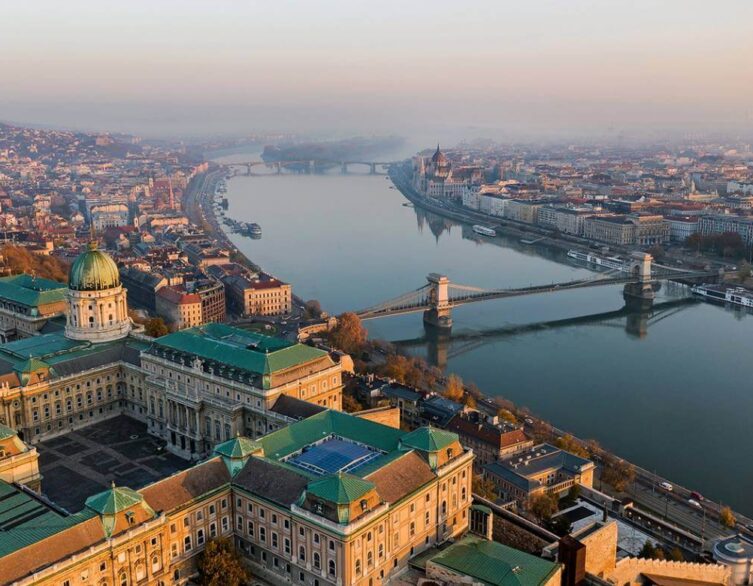New Regulation Package to Boost Tourism in Budapest

The Hungarian government has announced a comprehensive deregulation package aimed at enhancing the competitiveness of the tourism industry and reducing bureaucracy. The 16-point plan, presented by Minister of National Economy Márton Nagy, is expected to have a significant impact on tourism in Budapest.
Tourism Sector Overview
Minister Nagy highlighted the exceptional performance of the Hungarian tourism sector, with Budapest emerging as one of the most sought-after European destinations. Domestic tourism is also thriving, as evidenced by the increasing number of SZÉP card top-ups. The Budapest airport is on track for a record year, with passenger numbers potentially reaching 17.5 million by the end of the year. The tourism industry’s contribution to the GDP stands at 12%, and it generates more than 10% of state tax revenues.
Collaboration and Consultation
The deregulation package is the result of collaboration between the Ministry of National Economy and the Hungarian Tourism Agency, with input from 33 professional organizations through the Tourism Advisory Board established earlier this year. The measures aim to address the industry’s needs and foster growth.
Key Measures
Increased Police
Presence Police presence will be increased in the party district, with the number of patrols rising from 48 to 58. A separate police station will also be established, with the Hungarian National Asset Management Agency already designating a property for this purpose.
Short-Term Rental Regulation
The government plans to consult various organizations regarding the regulation of short-term rentals. In Budapest, a moratorium and tax increase are being considered, while the regulations will not affect rural areas. The intention is to limit the growth of the Airbnb market in the capital.
Best deals of Budapest
Rural Accommodation Expansion
Rural businesses will be allowed to utilize agricultural buildings, such as barns, as private accommodations, providing new opportunities for rural tourism.
Swimming Pool Supervision
Accommodations with pools or jacuzzis with a capacity of less than 20 people will no longer require a dedicated lifeguard. General supervision, such as cameras or staff from the buffet, will suffice.
Gratuity Management
Banks will be required to provide solutions for hospitality establishments to receive tips tax-free, even when paid by credit card. Banks are expected to develop systems that allow for the separate management of tips.
Service Charge Cap
The service charge invoiced by hospitality establishments will be capped at 12%.
MICE Incentives
For medical and professional medical events, the upper limit of hospitality expenses for invited professionals will be increased from 5% to 15% of the minimum wage, from HUF 13,000 to HUF 39,000.
Zoo Admission as Fringe Benefit
A clarification in the legislation will ensure that zoo admission is considered a tax-free fringe benefit.
Tour Guide Regulation
The tour guide profession will undergo comprehensive re-regulation. Currently, 20,000 tour guide cards are issued, but only 3,000-4,000 individuals are active. The requirements and qualifications for tour guides will be reviewed.
Tour Guide Training
Knowledge-renewal training will be introduced for tour guides, requiring them to pass an exam and renew it periodically.
Digital SZÉP Card
The SZÉP card system will be digitally developed to enable contactless use.
Parking Requirements for Restaurants
Parking requirements for restaurants will be rationalized, with the possibility of 100% exemption for establishments located in city centers or nature conservation areas.
Expansion of NTAK Data Provision
The range of attractions required to provide data to the National Tourism Data Supply Center (NTAK) will be expanded to include the Parliament, religious monuments, the Funicular, and narrow-gauge railways.
Airline CO2 Tax Abolition
As of January 1, the CO2 tax on airlines will be abolished to increase traffic at Budapest Airport. Additionally, the highway leading to the airport will be renovated.
Hospitality Business Guide
The Hungarian Tourism Agency will prepare a hospitality business guide outlining the legal requirements, procedures, and practices that establishments must follow.
Thermal Bath Gas Utilization
The regulations on the utilization of thermal water accompanying gas have been clarified. If the gas is used for own consumption or simply released into the air, no excise tax will be levied.
Conclusion
The comprehensive deregulation package announced by the Hungarian government is set to reshape the tourism industry, particularly in Budapest. The measures aim to reduce bureaucracy, support the growth of various tourism segments, and enhance the overall competitiveness of the sector. By addressing key challenges and providing incentives, the government hopes to further strengthen Hungary’s position as a leading tourist destination in Europe.
Image source: Visit Budapest












